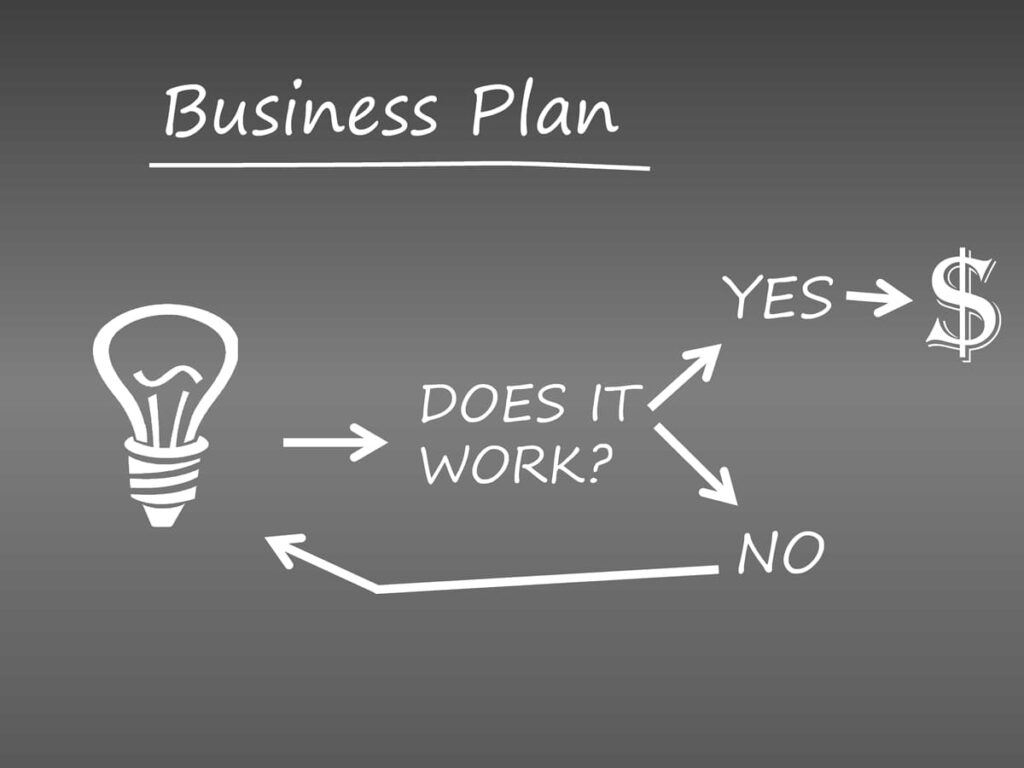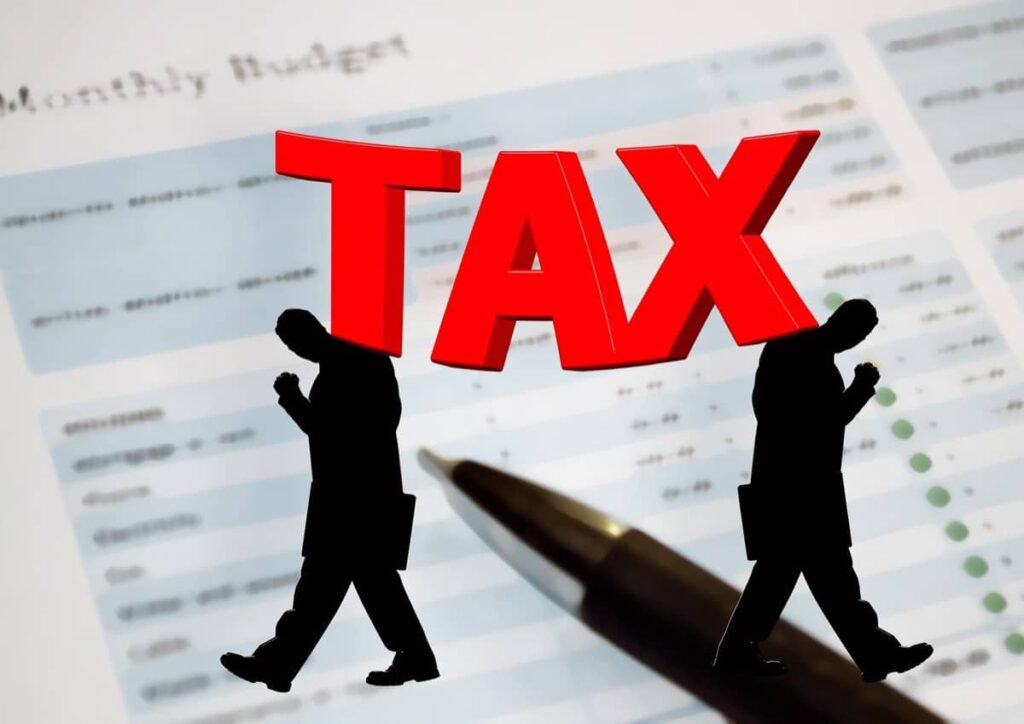Starting a small business in Australia can be a daunting task. It requires careful planning, commitment, and dedication to succeed. But it’s worth the effort if you want to follow your dreams of becoming an entrepreneur. This blog post will explore the steps and resources needed to start a small business in Australia. We’ll cover everything from setting up a business plan and registering your business to finding customers. Finally, you’ll have the confidence and knowledge to launch your own small business in Australia.

How to start a small business in Australia
Do your research
Starting a small business is a big decision. Before taking the plunge, there are many things to consider, such as your financial situation, business structure, products or services, and marketing strategy. Research is one of the most important things you can do before starting a small business. Many resources are available to help you understand the process and what’s involved. The Australian Government’s Business website is a good place to start.
You should also speak to other small business owners and get their advice. They’ve been through the process and can offer valuable insights. Another important step in the research process is to create a business plan. This will outline your goals, strategies, and how you plan to achieve them. It’s essential to have a clear plan before starting your business to know what you’re aiming for and how to get there.
Some profitable small business ideas in Australia
Many small business ideas can be profitable in Australia. Here is a list of some of the most profitable small businesses in Australia:
- Starting a business online is a great way to tap into a growing market. In addition, businesses have many opportunities to make money online, such as through e-commerce, f marketing, and social media.
- Home-based businesses can be very profitable in Australia. There are many opportunities to start a home-based business, such as pet sitting, child care, and cleaning services.
- If you have a passion for food, there are many opportunities to start a food-related business in Australia. For example, you could start a catering business, a restaurant, or even a food truck.
- There is always a demand for good quality construction services in Australia. If you have experience in the construction industry, you could start your own business offering your services to clients.
- If you are good with people and have excellent customer service skills, you could start your own business providing concierge services or running a virtual assistant business.
- If you are passionate about fitness and helping others achieve their health and fitness goals, you could start your own fitness coaching business or become a personal trainer.
- If you are creative and have an eye for detail, you could start your business designing and creating custom cakes or other desserts.
- Recycling is also a good small business in Australia.
In case you missed it: How to Start a Car Wash Business in Australia: Business Plan, Cost, Profit, License, and Requirements

The requirement to start a small business In Australia
- Firstly, you’ll need to have a clear business idea and plan.
- You’ll also need to register your business with the relevant authorities and obtain any licenses or permits that may be required.
- Finally, you’ll need to ensure you have the financial resources to get your business up and running.
- If you can meet all of these requirements, you’re well on starting a successful small business in Australia.
Write a business plan
A business plan is a document that outlines your business goals, strategies, and how you plan to achieve them. When starting a small business in Australia, a business plan is important, as it will help you map your path to success and track your progress. There are some points to keep in mind when writing your business plan:
- Your business plan must be clear and concise. It should outline your business goals, strategies, and how you plan to achieve them.
- Make sure to do your research. Know your industry inside and out, and be aware of any changes or trends that could impact your business.
- Be realistic in your projections. Don’t underestimate the time and effort it will take to reach your goals.
- Keep your business plan updated as your business grows and changes. Review it regularly to ensure you’re on track and make adjustments as needed.
In case you missed it: How to Start a Cleaning Business in Australia: Business Plan, License, Cost, Profit, and Requirements

Choose the right structure
When starting a small business in Australia, you need to choose the right structure for your business. Australia has four main business structures: sole trader, partnership, company, and trust.
- Sole trader: A sole trader is a single person who owns and runs their own business. This is the simplest type of business structure and can be set up quickly and cheaply.
- Partnership: It means two or more people enter a business together. Partnerships can be either general or limited partnerships. Limited partnerships have at least one partner liable for the partnership’s debts, while all partners in a general partnership are jointly liable for the partnership’s debts.
- Company: A company is a separate legal entity from its owners, meaning it can enter into contracts, own property, and incur debts in its name. Companies are more complex to set up than other business structures and require compliance with stricter rules and regulations.
- Trust: A trust is an arrangement where property (e.g., land, shares, or money) is held by one person (the trustee) for the benefit of another person (the beneficiary). Trusts can be either fixed or discretionary trusts. Discretionary trusts give the trustee discretion over how to distribute the trust property among beneficiaries, while fixed trusts have predetermined rules about how the trust property must be distributed.
Register your business
When you’re ready to start your small business in Australia, the first step is to register your business. This will give you a legal identity and allow you to operate under your business name. You can register your business through the Australian Business Register (ABR). The ABR is a government initiative that provides a single online registration point for all Commonwealth agencies. To register your business, you will need to provide the following:
- Your contact details
- Your business name and address
- Details of the company structure (if applicable)
- A description of your business activity
- Your ABN (Australian Business Number)
After you have registered your business, there are a few other things you need to do to get started, including opening a bank account, applying for relevant licenses and permits, and registering for GST (if applicable).
Get tax and GST ready
As a small business owner in Australia, you must know the various taxes you may need to pay. These include income tax, GST (Goods and Services Tax), and payroll tax. Income tax is levied on your business’s taxable income. This is the profit that your business makes after deducting all allowable expenses. The current corporate tax rate for small businesses is 27.5%. GST is a consumption tax charged on most goods and services sold in Australia.
In case you missed it: How to Start a Car Wash Business in Australia: Business Plan, Cost, Profit, License, and Requirements

The current GST rate is 10%. As a small business owner, you must register for GST if your turnover is more than $75,000 annually. Payroll tax is a state-based tax that is levied on the wages paid by your business. The rates and thresholds vary from state to state. In Victoria, for example, the payroll tax rate is 4.85%, and the threshold is $850,000 per annum. You need to be aware of different taxes as a small business owner in Australia. It is important to ensure that you comply with your tax obligations to avoid penalties or interest charges.
Understand your responsibilities
As a small business owner in Australia, you have certain responsibilities to your employees, customers, and the government. Understanding these responsibilities is critical to ensuring the success of your business. Your responsibilities to your employees include providing a safe and healthy work environment, paying them fair wages, and complying with all applicable employment laws. You also have a responsibility to train and develop your employees to be successful in their roles.
Your responsibilities to your customers include providing them with quality products or services, delivering on your promises, and treating them fairly. You are also responsible for ensuring that your customers know their rights and can easily exercise them if needed. Your responsibilities to the government include complying with all applicable laws and regulations, paying your taxes, and reporting any changes in your business status. You are also responsible for providing accurate information when applying for licenses or permits.
Cost to start a small business In Australia
The cost of starting a small business in Australia can vary depending on the type of business you want to start. For example, starting a brick-and-mortar store, you’ll need to factor in the cost of renting or purchasing commercial space and the cost of furnishing and stocking your store. On the other hand, if you’re starting an online business, you’ll need to factor in the cost of website development and hosting and any marketing and advertising expenses.
In case you missed it: How to Start a Cleaning Business in Australia: Business Plan, License, Cost, Profit, and Requirements

In general, you can expect to spend at least a few thousand dollars on start-up costs for a small business in Australia. However, starting a successful small business on a shoestring budget is possible if you’re clever about spending your money and keeping your overhead costs low.
Profit in a small business In Australia
There is no exact answer for how much profit each small business generates. There are many things to consider when starting a small business in Australia, but one of the most important is how you will generate profit. Here are a few tips to help you turn a profit in your small business:
- Know your products and services inside out – make sure you can answer any questions a potential customer might have about what you’re offering.
- Research your target market – who are they, and what do they want? What needs does your product or service fill?
- Create a marketing plan – how will you reach your target market and let them know about your business?
- Stay focused and organized – it’s easy to get sidetracked when running a small business, so make sure you have systems and processes in place to keep yourself on track.
- Monitor your finances closely – keep an eye on where your money is coming in and going out so you can make necessary adjustments to ensure you’re making a profit. By following these tips, you’ll be well on your way to generating profit in your small business in Australia!
In case you missed it: Profitable Food Franchise in India Under 10 Lakhs: Low Investment, and High Profits

8 tips for small business successes in Australia
- Develop a business plan: This will help you define your business goals and objectives and map a path to achieving them.
- Choose the right business structure: Australia’s most common business structures are sole trader, partnership, company, and trust. Each has advantages and disadvantages, so choosing the right one is important for your business.
- Register your business: Register your business name and ABN (Australian Business Number) with the Australian Securities and Investments Commission (ASIC).
- Get a business bank account: A dedicated business bank account will help you to keep track of your finances and manage your cash flow more effectively.
- Apply for licenses and permits: Depending on your business, you may need to apply for licenses and permits from the relevant authorities.
- Ensure you’re insured: Insurance protects your business’s assets and income.
- Understand your tax obligations: All businesses in Australia are required to pay taxes, so it’s important to understand your obligations in this area.
- Keep good financial records: Record keeping is essential for managing your finances, preparing tax returns, and applying for loans or grants.
Conclusion
Starting a small business in Australia is an exciting and rewarding opportunity, but it also comes with risks. Taking your time to research the market and understand what you need to succeed can help you increase your chances of success. Consider seeking assistance from professionals such as accountants or lawyers, if necessary, to ensure that your business follows all applicable laws and regulations. Developing a solid foundation for your small business will help you achieve greater long-term success.
- Handicraft Making at Home: A Small Profitable Business Idea
- Pet-Tech Startups: Innovations for Animal Lovers
- Tech Repair Services: Meeting the Demand for Gadget Maintenance
- Maximizing Rewards: Smart Credit Card Habits for Cashback and Points
- Ultimate Guide to Making Money from Goat Milk Business
- How to Start an Agricultural Value Added Product Business
- Value-Added Business Ideas for Greenhouse: The Best Ways to Make Profits with Greenhouse Farming
- How to Make Profits with Organic Country Chicken: Best Strategies for Beginners
- 10 Value-added Business Ideas for Millets: Low-investment and Highly Profitable
- Why Cleaning Service Business Becoming More Profitable in Metro Cities in India
- 10 Best Businesses to Start in Ayodhya for Profits
- Top Drone Business Ideas in India: Unlocking Aerial Innovation & Opportunities
- Top 10 Service Businesses You Can Start with No Money
- Ultimate Guide to Starting a Home-Based Advertising Agency Business
- Starting a Nail Salon Near Your Location: Check List, Business Plan, Licensing, and Opening Instructions
- Construction Company Name Ideas: Guide to Create New Construction Company Names
- 8 Best Small Businesses to Start in Hyderabad: Low-Cost and Profitable
- 10 Best Small Businesses to Start in Massachusetts: Low-Cost and Profitable
- 10 Best Small Businesses to Start in Maryland: Low-Investment and Profitable
- 10 Best Small Businesses to Start in Delaware: Low-Investment and Profitable
- 10 Best Small Businesses to Start in Connecticut: Low-Investment and Profitable
- Top 10 Best Online Pet Business Ideas: Exploring Cats to Dogs
- 10 Best Small Businesses to Start in Colorado: Low-Investment and Profitable
- Top 10 Profitable Small Business Ideas in California: Low-Investment Tips
- From Little Rock to Fayetteville: Top 10 Profitable Small Business Ideas in Arkansas
- Top 10 Profitable Small Business Ideas in Alabama: Discover Opportunities in Alabama’s Growing Cities
- Top 10 Profitable Small Business Ideas in Arizona: Discover Opportunities in Arizona’s Growing Cities
- Golf Business Ideas: Exploring Golf Course Money Making Ideas
- Low Capital Profitable Small Farm Ideas: Farming Ideas to Make Money
- How to Write a Business Plan for Daycare: Exploring from Financial Projections to Risk Management
- Home Daycare License Requirements: Exploring State-wise In-home Daycare Requirements
- How Profitable is Day Care Business: How Much Does a Daycare Owner Make a Month or Year?
- How to Open a Daycare Center in Toronto, Canada: Business Plan, Licenses and Permits
- How to Start Meal Prep and Delivery Services: A Popular Business Idea
- How to Start a Milk Chilling Plant Business
- How to Start Coconut Shell Charcoal Business: Business Plan for Maximizing Profits